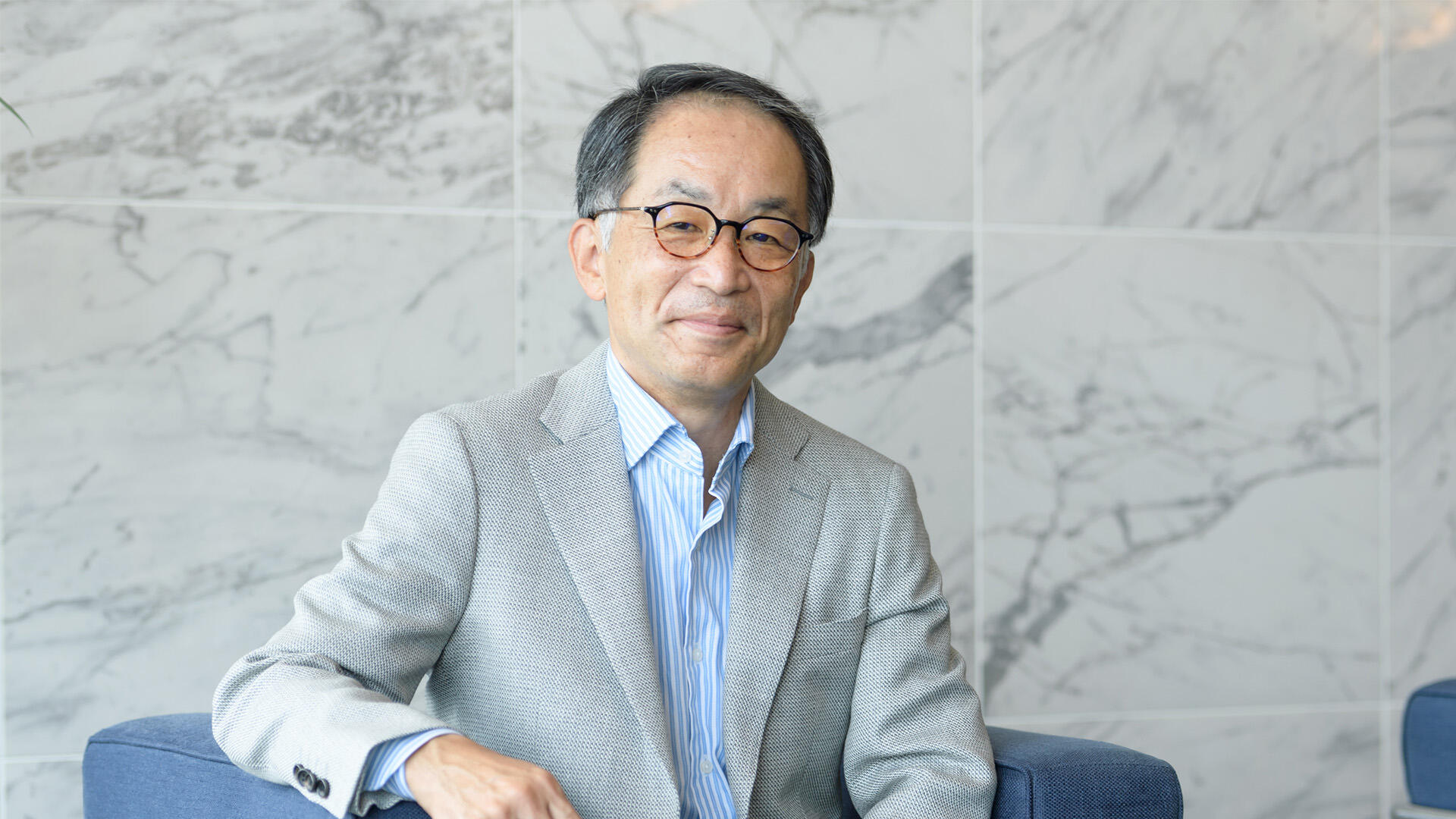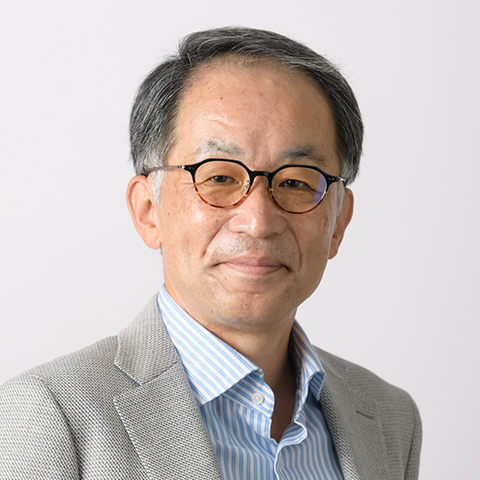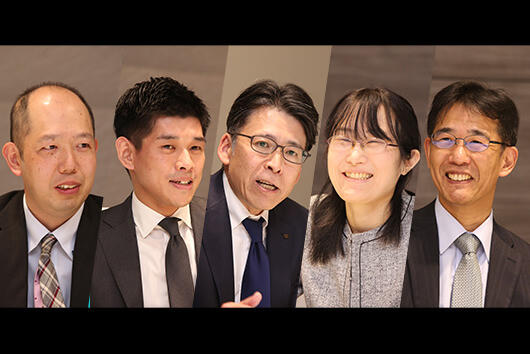PACIFIC CONSULTANTS is a construction consulting company that provides technical services related to the planning, design, maintenance, and management of various social infrastructure such as roads, railways, rivers, and ports. The company's predecessor, U.S. Corporation, was started in 1951. Since then, for over 70 years, the company has supported the development of various infrastructure both domestically and internationally, making full use of its high technical capabilities and comprehensive capabilities covering a wide range of fields, in order to realize a society in which citizens can live in peace and security. We have talked to the President and Representative Director, Osamu OMOTO, about the type of company that PACIFIC CONSULTANTS GROUP aspires to be.
-Please tell us about PACIFIC CONSULTANTS GROUP.
OMOTO: We are a construction consulting company. Construction consultants receive orders from national and local governments for various social infrastructure such as roads, railways, rivers, and ports, and provide technical services related to scheming, investigation, planning, design, construction management, and maintenance. In fact, it is the construction company that actually carry out the construction. Construction consultants' job is to consider these issues from a broad perspective and with a big vision that includes why these infrastructures are necessary, what social issues they can solve, and how to satisfy various stakeholders, and to translate these ideas into concrete projects.
Why do construction consultants need a big vision? The story of how our company was founded also explains this.
PACIFIC CONSULTANTS' predecessor was PACIFIC CONSULTANTS, Inc., a Japanese-American joint venture founded in 1951, shortly after the war. It was a time when Japan needed to develop various infrastructures such as railroads, roads, and dams to expedite its reconstruction. The national and local governments could not possibly shoulder the burden alone. PACIFIC CONSULTANTS was needed to shoulder that burden. From the time of establishment, we were expected to have a broad perspective and a high level of public interest.
For example, let's say you are building a bridge. It is not enough to simply build a bridge that is structurally safe and fulfills the required functions. You need to consider all sorts of issues from multiple angles, such as the impact on the environment of building the bridge, how it will change traffic, industry, and people's lives, what kind of future can we envision, whether anyone will be disadvantaged as a result, and who should maintain the new bridge and how. Without going through this process, you cannot develop truly valuable infrastructure. That is the purpose of construction consultants.
--Among the many construction consulting companies, what is the distinctive feature of PACIFIC CONSULTANTS GROUP?
OMOTO: There are two. The first is our comprehensive capability to provide technical services for all types of social infrastructure. Social infrastructure covers a wide range of areas, including roads, railways, rivers, ports, airports, dams, water supply and sewerage, waste disposal, environmental conservation, and disaster prevention and mitigation. Many construction consulting companies are characterized by focusing on the road sector or being strong in the river sector, but we have engineers and technical capabilities that cover all fields. By working together within one company, we can provide deeper, higher quality integrated solution services.
Another thing is that they are thorough with civil engineering. Civil engineering is a general term for technology that develops an environment where citizens can live peacefully and safely. In Japanese, it is translated as "civil engineering," but the original meaning is not fully conveyed. Civil engineering does not simply involve planning, designing, and constructing infrastructure, but also architecture and urban planning, as well as the associated communication, coordination, and consensus building with citizens from a fair and neutral standpoint. It also includes how to secure the necessary funds, how to operate and maintain the project after completion, and, in the case of a project in a developing country overseas, the transfer of technology to the host country and the training of those who will carry it out. Civil engineering is the collective term for all of these.
Let us use the Shibuya revitalization project we are currently working on as an example to show what role our comprehensive capabilities and civil engineering play and how they create value.
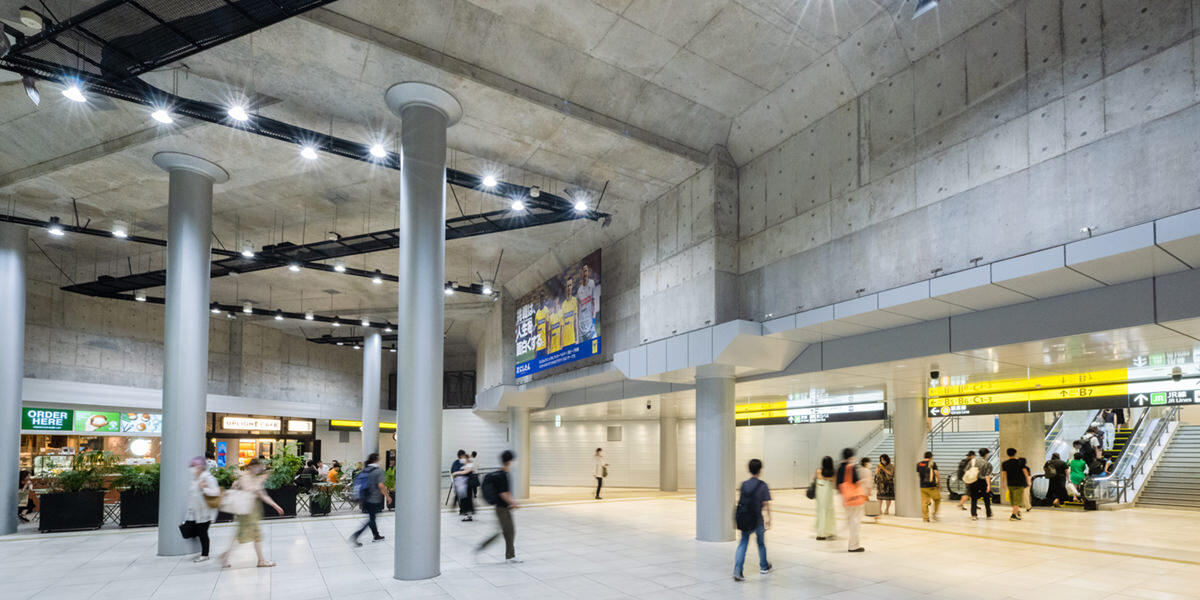
At first, it was a railway business. The idea was to realize the mutual access of different lines and the undergrounding of stations. But our work does not end there. There are many things to consider, such as what to do with the huge new station site, rebuilding related buildings, redeveloping the entire area in front of the station, improving roads and rivers, and creating new disaster prevention plans. Not only clients and businesses, but also residents and people who visit Shibuya are stakeholders. Combining diverse knowledge and specialized technology, we sought consensus through communication with residents, solving the issues of the town of Shibuya, and conceived a new Shibuya together with the local people. As a result, the area around Shibuya station is what it is today, and will continue to change in the future. What is required of us now is exactly "comprehensive capabilities" and "engineering for the citizens," and we believe that being able to realize this is the strength of PACIFIC CONSULTANTS GROUP.
-What kind of company do you want PACIFIC CONSULTANTS GROUP to be in the future?
OMOTO: We have two goals. The first is to develop infrastructure to realize a society where people around the world can live in peace and security, and the second is to protect the global environment and pass on a rich Earth to the next generation.
Of course, we are not a country or an international organization. We cannot directly end wars or resolve conflicts, and we cannot realize a society in which people can live in peace and security simply by developing infrastructure. We cannot protect the global environment by our own efforts. However, we can work on disaster prevention and eliminate the seeds of conflict and anxiety about the future of the planet.
For example, a bridge is built in a developing country, and a road is extended. A new railway network is created. These things connect regions and countries, eliminating social inequality and creating unprecedented exchanges. The region becomes more prosperous and economic disparities are narrowed. Infrastructure is developed as part of international cooperation, and technology is transferred to partner countries and human resources are developed. I believe that these things will help prevent conflicts from occurring.
We have also been working on the issue of global warming for over 30 years. Our company's department, which has specialized knowledge, has been conducting research and consulting for many years on how to reduce greenhouse gas emissions for the Japanese government and Southeast Asian countries. We are also working on infrastructure development to protect people's lives from the various disasters that have become more prominent with climate change, as well as the reconstruction and urban development of areas affected by large-scale disasters. These efforts are leading to the realization of a sustainable society. We were also the first among many companies to declare decarbonization management "Pacific Net Zero," and have taken the lead in taking concrete measures.
Our mission and reason for existence is to realize a society where people around the world can live in peace and security, to protect the global environment, and to achieve both goals and build a sustainable society.
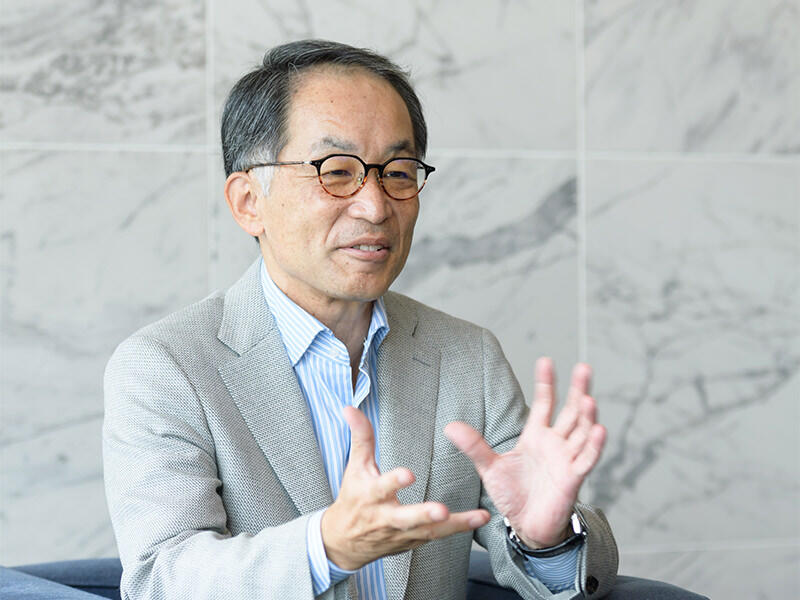
--What specifically will you do to achieve this?
OMOTO: There are many things we need to do, and each department is working on various measures, but PACIFIC CONSULTANTS GROUP 's greatest asset is its people. It is no exaggeration to say that people are everything. I think the most important thing is how to develop human resources with rich individuality and capabilities.
Specifically, we are working from every angle to create an environment where people with diverse abilities and personalities, including nationalities, can work with enthusiasm in a healthy state of mind and body. In order to ensure that organizations and teams can always perform to their full potential, we are working across the company to create an organization with a high level of psychological safety, where anyone can frankly express their opinions, ask questions, and point out any discomfort they may have.
We will become a group of civil engineers who share the same values, act autonomously based on mutual trust, and take on the challenge of solving social issues - this is the path we believe will realize the type of company we aspire to be and pave the way for the future of PACIFIC CONSULTANTS GROUP.



